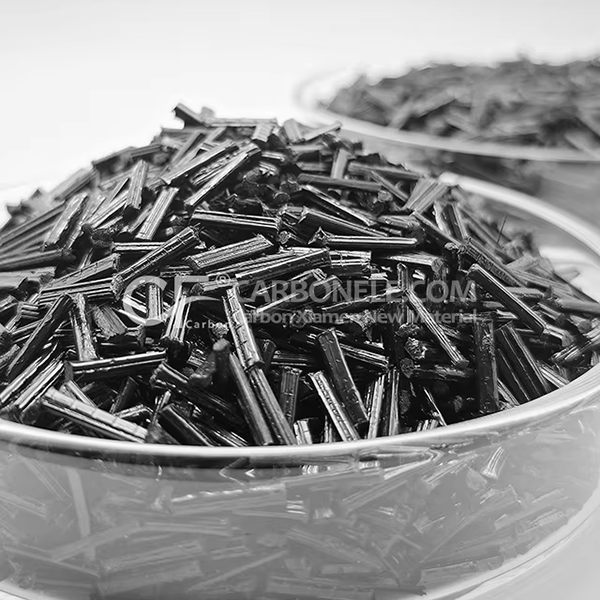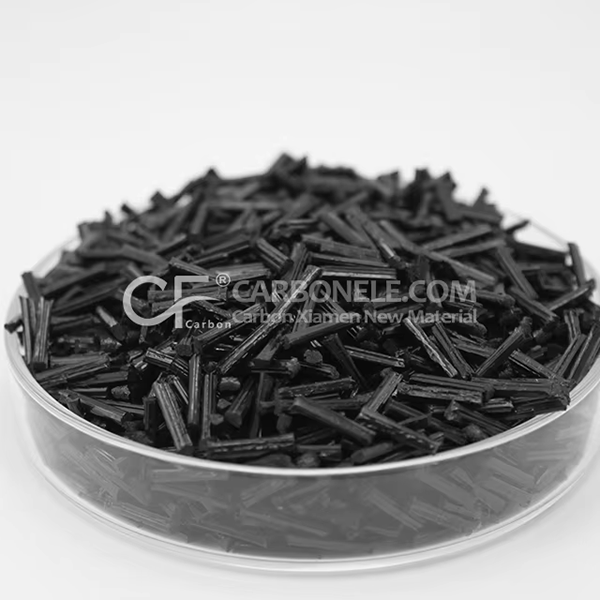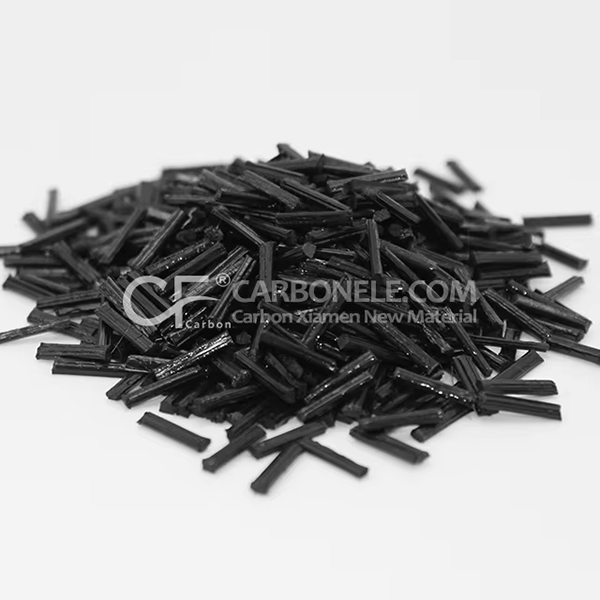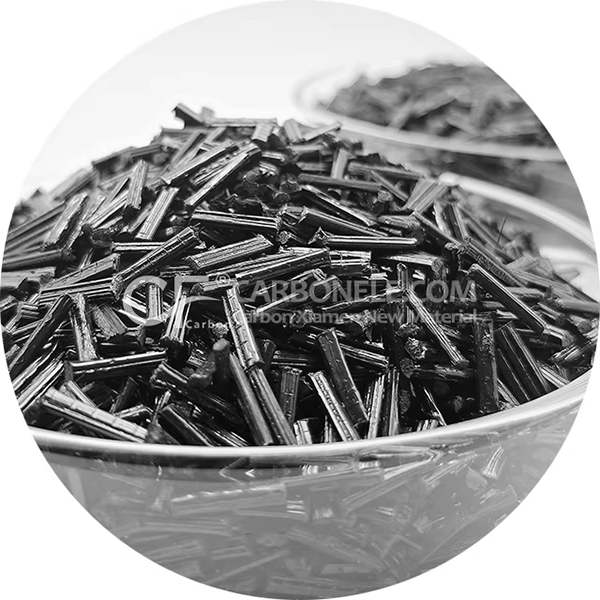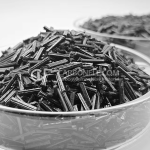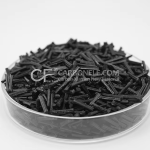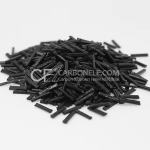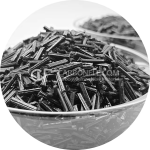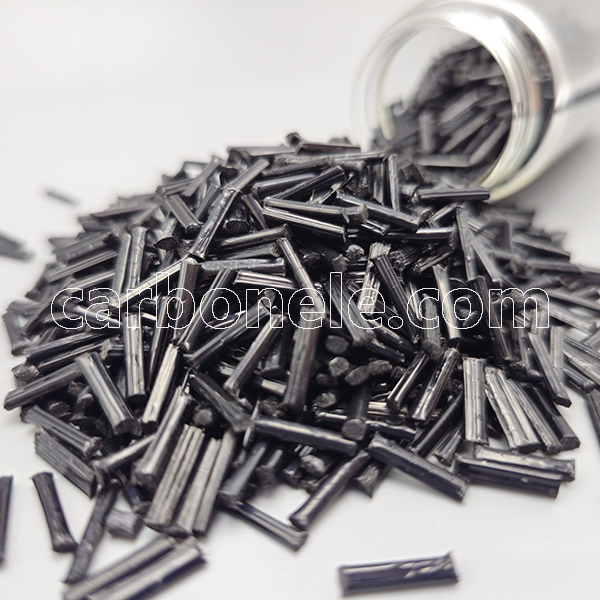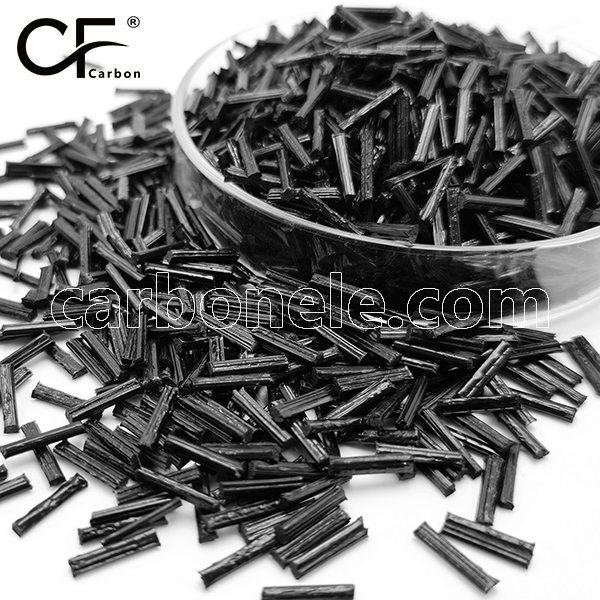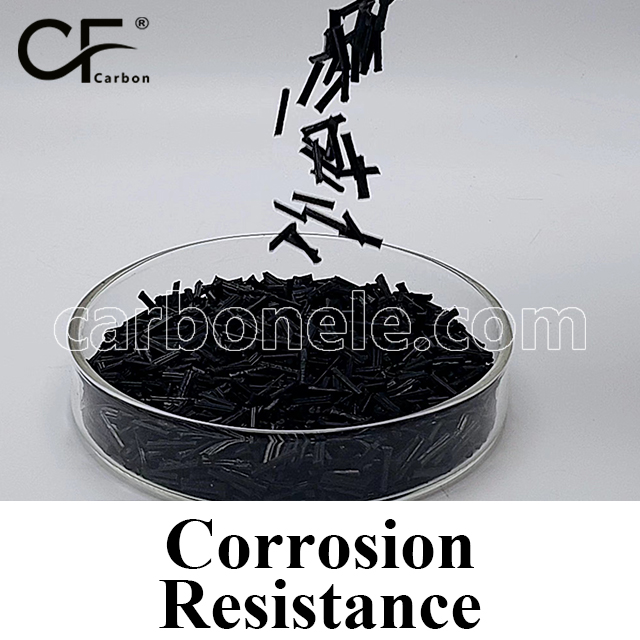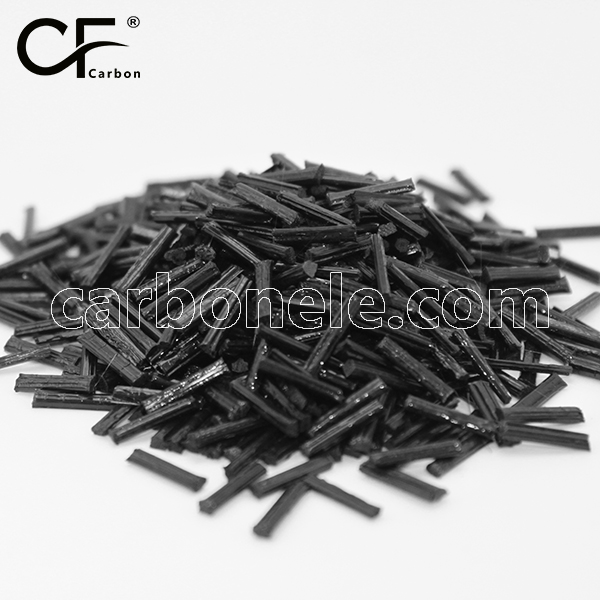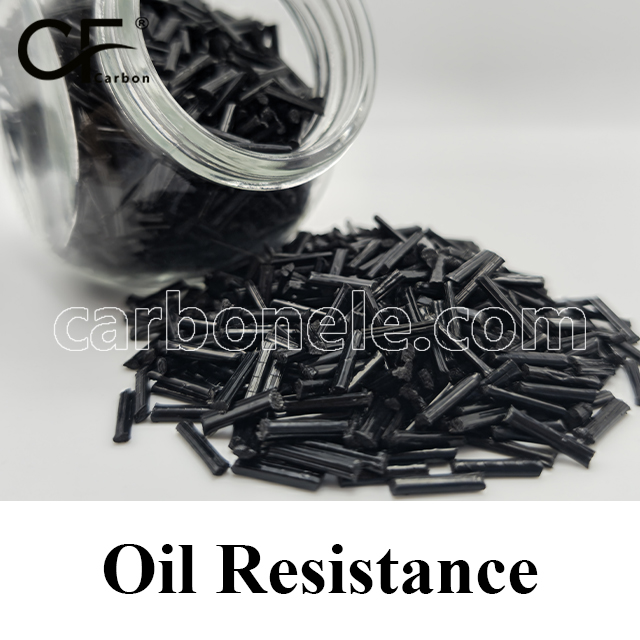
PA66-LCF with Flame Retardancy
Flame Retardant PA66-LCF Composite combines PA66’s superior processability with long carbon fiber reinforcement, delivering UL94 V-0 flame resistance (LOI≥30%) while maintaining enhanced mechanical properties (220-320MPa tensile strength) and improved thermal stability (230°C HDT). With its optimized density (1.3-1.4g/cm³), this premium material provides an ideal balance of lightweight performance and structural integrity for demanding applications in electric vehicles, aerospace interiors, and advanced industrial components.http://www.carbonele.com
- Manufacturer: Carbon New Material
- OEM/ODM: Acceptable
- Color: Black
- Port: Xiamen
- Model: PA66-LCF
1.What is PA66-LCF 20?
Flame Retardant PA66-LCF is an advanced thermoplastic composite that combines polyamide 66 (PA66) as the matrix with long carbon fiber (LCF) reinforcement and specialized flame-retardant additives. This unique formulation leverages PA66’s excellent chemical resistance and processability while incorporating LCF’s superior mechanical properties.
Through optimized flame-retardant technology, the material delivers exceptional fire safety alongside enhanced strength and impact resistance. These well-balanced characteristics make PA66-LCF ideal for demanding applications in electrical engineering, aerospace, and automotive industries.
2.Key Performance Specifications of Flame-Retardant PA66-LCF Composite
Key Performance Characteristics:
Flame Retardancy:
UL94 V-0 certification
High LOI ≥28%
Excellent flame suppression and low smoke emission
Mechanical Properties:
Tensile strength: 210-310 MPa
Flexural modulus: >11 GPa (60%+ improvement over standard PA66)
Superior impact resistance
Thermal Performance:
HDT @1.82 MPa: ≥225°C
Maximum service temperature: 155°C
Lightweight & Processing Benefits:
Density: 1.35-1.45 g/cm³
Excellent flow characteristics for complex molding
What is PA66-LCF 20?
PA66-LCF 20 is a premium-grade engineered composite where nylon 66 resin is reinforced with precisely 20% long carbon fibers (LCF), delivering exceptional strength-to-weight ratio and thermal stability for demanding industrial applications.
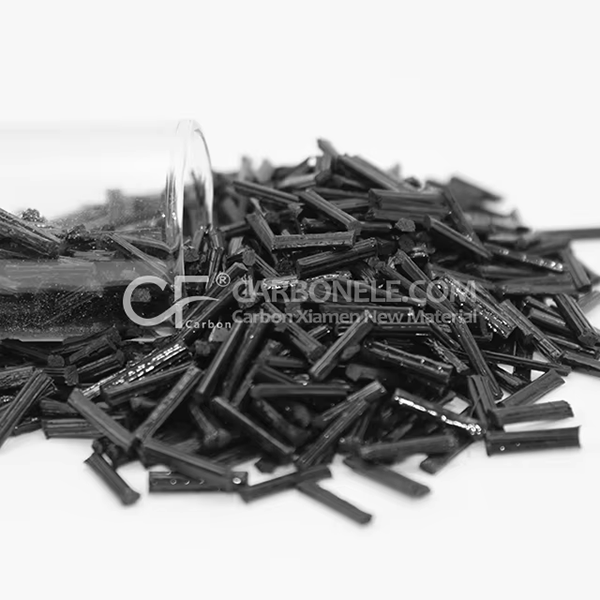
Get to Know Carbon Fibers
strengths are 5880 MPa and 6370 MParespectively. T1100G stands out with thehighest tensile strength of 7000 MPa and atensile modulus of 324 GPa. Generally, withthe increase in product grade, the tensilestrength and modulus tend to rise, whilethe density remains relatively stablearound 1.8 g/cm.
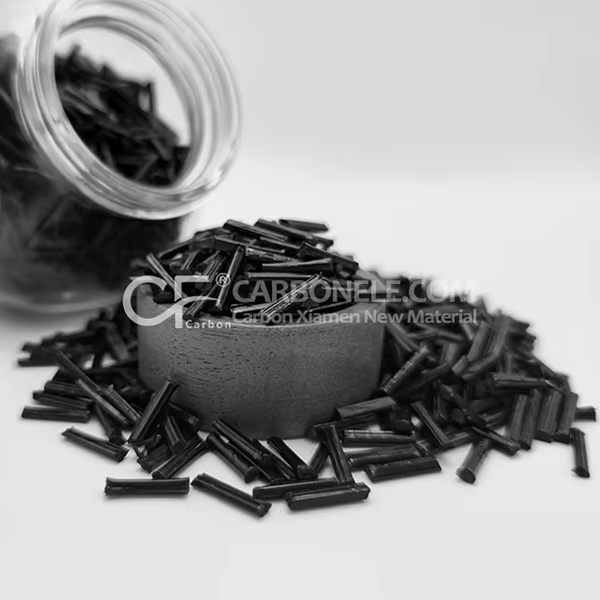


Frequently Asked Questions
Carbon (Xiamen) New Material Co., Ltd. aims to provide buyers with "one-stop" worry-free high-quality services. Here you can find all information about carbon fiber engineering plastics. If you still have questions, please send us an email for consultation!
-
How can I contact the manufacturer of a product that interests me?
When you find a product you are interested in, you can contact the manufacturer directly by sending an email and we will get back to you as soon as possible.
-
How do I find the products that interest me?
All you need to do is enter the keyword, product name in the search window and press the Enter key on your keyboard. Your search results page will then be displayed. You can also search within the product category pages on the home page. Each category is divided into subcategories, allowing you to refine your search and find products that interest you.
-
Where will I find a buying guide?
Please contact our after-sales service directly and we will provide you with a comprehensive operating guide.
-
What are CF Reinforced Thermoplastic Composites?
CF Reinforced Thermoplastic Composites are materials where carbon fibers are incorporated into a thermoplastic matrix. They combine the strength and stiffness of carbon fibers with the processability and recyclability of thermoplastics. For instance, they are used in automotive parts like bumper beams.
-
What are the benefits of CF Reinforced Thermoplastic Composites over traditional composites?
The key benefits include faster production cycles, easier recyclability, and better impact resistance. They also offer design flexibility. An example is in the manufacturing of consumer electronics casings where complex shapes can be achieved more easily.
-
How are CF Reinforced Thermoplastic Composites processed?
Common processing methods include injection molding, extrusion, and compression molding. Injection molding is widely used for mass production. For example, in the production of small components for the medical industry.
-
What industries use CF Reinforced Thermoplastic Composites?
They are utilized in aerospace, automotive, medical, and sports equipment industries. In aerospace, they can be found in interior components. In the medical field, they might be used in prosthetics.
-
How does the carbon fiber content affect the properties of the composites?
Higher carbon fiber content generally leads to increased strength and stiffness but may reduce ductility. A moderate content is often balanced for specific applications. For example, a higher content might be preferred in structural parts of a race car.
-
What are the challenges in using CF Reinforced Thermoplastic Composites?
Challenges include higher material costs, complex processing equipment requirements, and ensuring uniform fiber dispersion. Issues with adhesion between the fibers and the matrix can also arise. An example is in achieving consistent quality in large-scale production.







